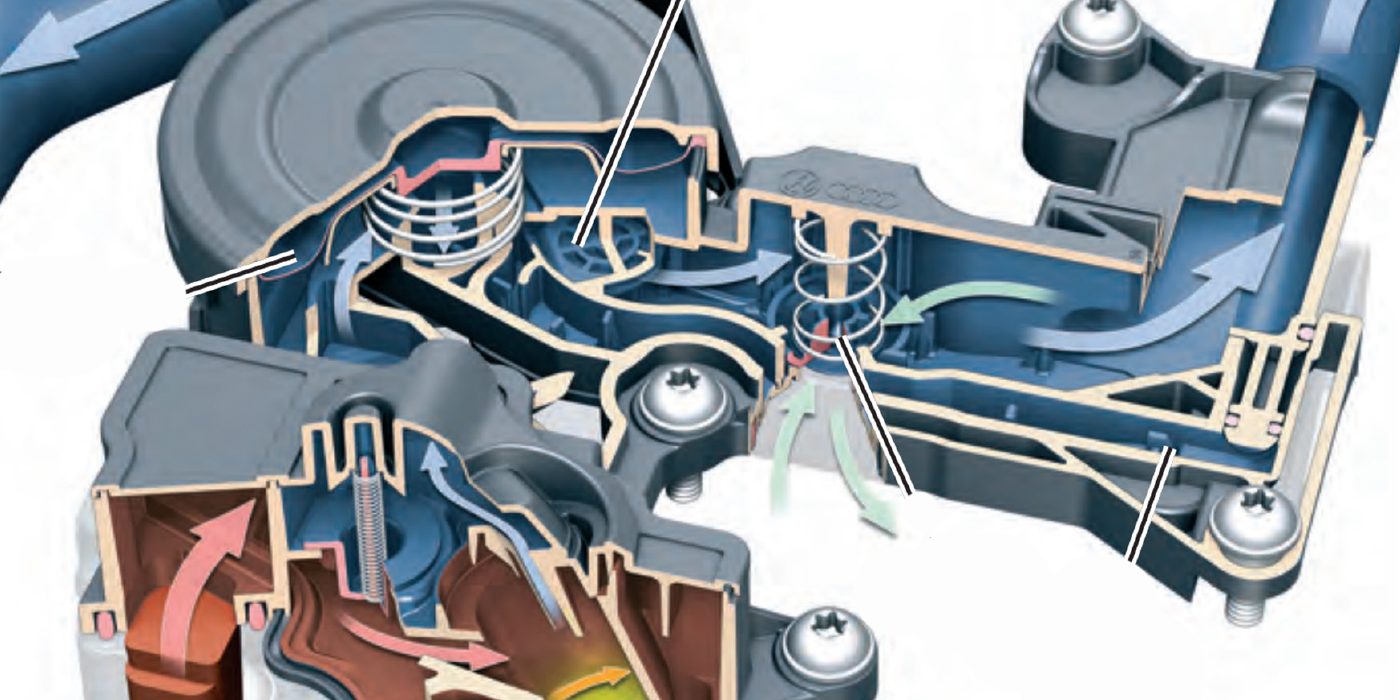Last month, we discussed the industry’s move toward a new refrigerant — HFO-1234yf — for mobile air conditioning systems. The move is expected to begin in European vehicles and eventually become common in domestic vehicles (See Directions, March 2010 issue.)
While we discussed the reasons why the change was being implemented, what the product will accomplish, who is part of the new refrigerant movement and where and when it will occur, this month, we’ll take a look at how all that can effect your shop, technicians and bottom line.
What It Means for Shops and Techs
In a presentation with MACS and DuPont officials in January in France, it was explained that shops should expect some potential service differences with HFO-1234yf.
The most obvious is the need for service shops to purchase and operate new recovery, recycling and system recharging equipment. Shops will not be able to use the same R-134a refrigerant equipment when servicing the new HFO-1234yf systems.
Equipment manufacturers we spoke to said they are currently in development of new equipment to handle the HFO-1234yf systems and adhere to updated SAE guidelines for such equipment.
It also was noted that refrigerant identifiers and updated leak detection equipment would be necessary for shops to service these systems.
Safety Issues
According to the new refrigerant’s developers, there are chemical differences between HFO-1234yf and the current R-134a system.
For example, HFO-1234yf is mildly flammable, so technicians and shop staff would need training to understand the precautions that need to be followed when used with other flammables (i.e. gasoline, oil).
Also, since the new refrigerant is heavier than air, care must be taken in the shop in low-lying areas (such as workshop/oil drain pits, shafts or cellar exits), which may cause released refrigerant to pool. Service technicians should not smoke or have any open flame present while working on these refrigerant systems or in the low-lying areas where HFO-1234yf could accumulate.
One of the proposals is to require work areas to be adequately ventilated and fans available if needed.
Be Mindful of Mix-Ups
Cross contamination is also expected to be an issue in the early stages of HFO-1234yf use in vehicles, as DIYers may charge non-approved refrigerants into these A/C systems.
The outcome of cross-contamination could be system failure or system misdiagnoses if the technician isn’t informed of the mixed refrigerants in a vehicle’s A/C system.
Product manufacturers also will take precautions to reduce cross-contamination at the shop. Currently, packaging for R-134a refrigerant is in light blue, 30-lb. returnable containers.
Packaging color for HFO-1234yf containers (also offered in 30-lb. returnable containers) will be white with red band around it.
And, don’t expect to perform any R-134a to HFO-1234yf retrofits. While R-12 to R-134a
retrofit jobs at service shops were a “hot topic” in the mid-1990s, the EPA said R-134a product would remain available to service existing systems.
That concept may work better this time around. While retrofits in the 1990s did provide shops additional revenue and service opportunities, many customers felt the new systems didn’t cool their vehicle cabins efficiently. This is because those vehicles were designed to use the (better cooling) R-12 systems, rather than a less-efficient R-134a system.
And, let’s not forget the “mystery refrigerant” fiasco of the late ’90s, as DIYers never really knew for certain what was in that container of bootlegged R-12 that they used to charge their system. Incidents like that were tough on shop owners when they found out their recovery equipment became contaminated or they had to dispose of a flammable “cocktail” of refrigerant recovered later from that vehicle’s system.
Since manufacturers will continue to produce R-134a with no interruptions until these systems slowly phase themselves out, the issues of bootlegged and unknown refrigerants should diminish.
SAE and the EPA also explained that HFO-1234yf systems will also use specific fittings that are different from R-134a units in an effort to minimize accidental cross-contamination.
And, the EPA also stressed that HFO-1234yf refrigerant system components should not be replaced with ones removed from a system that uses another type of refrigerant (R-134a) or from a salvaged vehicle.
Charging Costs
Finally, customer feedback is going to be something you will need to deal with. According to manufacturers, the new refrigerant will cost more to produce. While no pricing has been introduced until the market dictates mass production of the refrigerant, it is estimated by some that HFO-1234yf could cost anywhere from $35-$60 a pound.
So, you can pretty much expect some customers who have their HF0-1234yf systems serviced down the road will give you an earful when they get a service repair estimate. When dealing with such customers, just remember to “keep your cool.”









